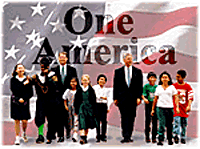 |
 |
La Casa de Don Pedro, Inc. (La Casa) is a nonprofit, community-based organization. La Casa was founded in 1972 by 10 concerned, transplanted Puerto Rican parents who sought to find hope for their children and their community in the aftermath of the 1968 Newark riot. From the beginning, La Casa made an effort to assist community residents within a culturally sensitive framework. La Casa's mission, then and today, is to provide for the well being of low and moderate-income families by helping them break the financial and emotional hold of poverty and fostering their self-sufficiency.
La Casa is committed to providing families with a comprehensive network of culturally sensitive services. It offers more than 20 programs, which include counseling, child care, education, mentoring, job training and placement, homelessness prevention, energy conservation, leadership development, community economic development, and housing. La Casa's staff of more than 100 full-time employees work to create an atmosphere of hope and optimism within a framework of community building. La Casa's focus on the family and the community is reflected in its programs. Within La Casa's day care program (one of the organization's longest and most comprehensive programs), children of diverse backgrounds enjoy family table style meals, learn, and play within an environment that respects and teaches the value of diversity. La Casa also assists a diverse population with its housing and economic. In addition, La Casa's welfare-to-work program, which employs a job placement officer, was contracted by the city to provide job search services to residents.
Outcomes and Significant Accomplishments La Casa, which serves over 12,000 families annually, founded the first bilingual, bicultural day care center in New Jersey over 25 years ago. Over 100 children are enrolled in the year-long program annually. The population served by La Casa reflects the ethnically diverse population of the North Ward of Newark, which is 45 percent Puerto Rican, 20 percent Black and 10 to 15 percent Hispanic, other than Puerto Ricans. La Casa is supported by a combination of city, state, county, private and federal funding.
|
![]()
To comment on this service,
send feedback to the Web Development Team.
![[White House icon]](/New/images/home_pin.gif)
![[Help Desk icon]](/New/images/help_pin.gif)